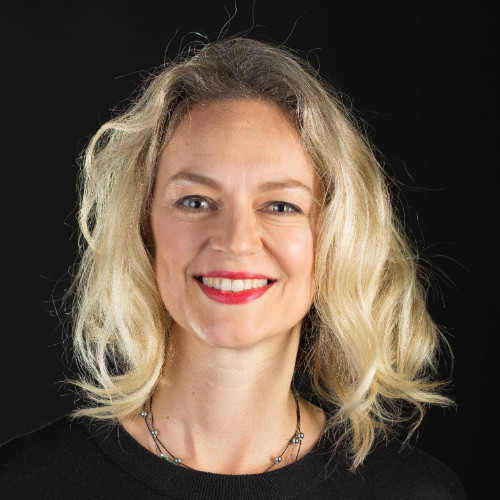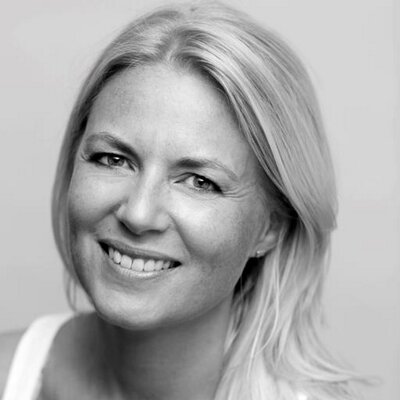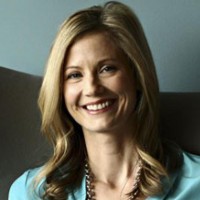Ahead of Information Age’s Women in IT Awards New York, we caught up with Holly McComb, CFO at TVSquared, Kate Owen, vice president Northern Europe at Digital Element, Meredith Albertson, vice president, Marketing, at Tealium and Louise Kloster, VP Marketing at Adform.
All are making strides in their fields and adding diversity to this male dominated industry — of which women make up just 20%. Here, they share their advice for others making the same career choice.
Have you overcome any struggles in the workplace?
Holly McComb, CFO, TVSquared: I took up my first CFO role of a public company when five months pregnant.
Kate Owen, VP Northern Europe, Digital Element: Self doubt has to be the biggest struggle I have had to overcome in my career, together with doing the female “politeness thing” of standing back and getting others to take credit.
There have been countless times that I have found myself taking blame unnecessarily, or not stepping up and saying something, to avoid confrontation at all costs. It’s taken me a long time, learning through these experiences and general ‘growing up’, to realise that this never ends well. A small dispute here and there won’t kill you when it is handled in an adult manner and ultimately saves a whole host of problems later on.
Diversity in technology: The playbook of best practice
Louise Kloster, VP Marketing, Adform: I have redefined myself more than once in my life. I think it’s never too late in your career to reinvent yourself, what you stand for, and what you want to be known for. I embraced a great change when I moved from Microsoft to Adform, shifting into adtech from advertising despite not having any previous experience in it. And threw myself into it wholeheartedly as I knew that was where the industry was going.
I’ve also experienced changes within organisations and, as a result of this, have adapted and moved roles. However, I never saw these as struggles but instead opportunities. During my time at Microsoft there were a lot of organisational changes and I looked at them as a new avenue to explore, not a negative to my career progression.
One of my goals, which I have now achieved during my time at Adform, thanks to its focus on diversity and inclusion, and also at Microsoft, is to have a 50/50 team split between men and women. It has given me the best possible balance, particularly within my leadership team. I like my teams to be as inclusive and diverse as possible – be that religion, ethnicity, background or education. Society is broad, so why not make your company reflect that.
Meredith Albertson, vice president, Marketing, Tealium: During the course of my career I have worked in many male-dominated industries from professional sports to tech — I just haven’t let it be part of my thinking that there wasn’t a role or job I couldn’t get. A positive attitude and professionalism, along with a lot of hard work, have helped me overcome any struggles I have faced in these environments.

Who are your role models?
HM: I try to absorb a little bit from everyone I interact with. Whether it was a good turn of phrase, an interesting story or a kind act.
KO: Funny, tough, disrespectful women who are not afraid to admit that life can be scary sometimes. Michelle Obama, Sarah Millican, Olivia Coleman, my mother, Jacinda Ardern.
LK: Firstly, my manager while at Microsoft, Emma Clooney, as she has also redefined herself at various points throughout her career and, as result, now has a C-Suite position at Google. I never saw that she had a single issue with being a female in this industry. She taught me to ask for things, drive action, and keep learning – I really enjoyed working for her. She showed me what I could be and taught me that what you don’t see, you cannot become. I believe women need these types of role models – it really inspires you to achieve.
I have also worked for a lot of very intelligent men, and believe you need to learn from both men and women – that balance is important. Being a manager, it’s not all about gender, it’s about wanting to be the best manager you can be and the necessary skills required to take your team to the next level. The current CEO of Microsoft Belgium, Didier Ongena, challenged me every single day to become better. It wasn’t always easy, but life isn’t about easy, it’s about growing and challenging yourself. He never accepted that where you are today is the best you can be; I loved being constantly challenged to become the best version of myself.
Finally, I have known Gustav Mellentin, co-founder and CEO of Adform, for 16 years and it is such an inspiration to be part of a journey that I have followed since 2004. Because my first experiences of the adtech industry were in Denmark, I saw him start, saw him fight, and saw him grow. Now to be part of 900-employee strong, global company makes me super proud to be Danish and to have been a part of this amazing company’s global expansion.
5 top women in tech history
MA: My mum was one of my biggest role models as she showed me from a very young age that you could balance having a successful career and a wonderful family. She also instilled in me that I really could do absolutely anything I wanted, there were no limits as long as I worked hard and gave it my best. I am very lucky to have grown up believing there were no limits or boundaries to what I wanted to achieve in life.

What advice would you give to your younger self now?
HM: There’s no hurry.
KO: I would tell myself to think about the inner voice you talk to yourself with. When you catch yourself saying things like, “oh, you are so stupid” or “you idiot” etc. ask yourself: would you say that to your best friend? If not, why are you saying those things to yourself?
Your inner voice is powerful and has a real impact on not just how you see yourself, but how you carry yourself in the world and thus how others perceive you. It should be something that supports you, not cuts you down.
The best-friend test is extremely helpful to catch that self-destructive inner voice out and teach it to be a little nicer.
Why CIOs can have a huge influence on increasing diversity in tech
LK: Don’t be afraid of taking a step down on the career ladder, because you can always go up and learn something new on the way, and always challenge yourself. The goal is to evolve – I want to keep growing and learning to make sure I’m achieving the best I can for my team. I admit I’ve jumped a couple of times through my career when I didn’t know what I was jumping into – as mentioned earlier coming from a 16 year career in digital advertising and taking the leap to the adtech side – however I saw the future, especially where advertising was going and knew I wanted to be a part of it.
If there is one piece of advice I can give women is don’t apologise for being a female. I never apologised and I never portrayed masculinity to advance in the workplace. I can bring to the table as much as my male counterparts, I never felt the need to change.
MA: I would share with my younger self that you will never be able to make everyone happy, you must choose those that matter to you most professionally and personally, and focus on them.

Do you have any tips on overcoming masculinity in the workplace?
HM: We’re all just people bringing our own issues into the workplace. You’ll need to be kind and brave in equal measure.
KO: I have been fortunate enough not to feel too much negative influence through being female in my career and I’m lucky enough to be working in an environment where I can really say that excess masculinity in the workplace is not an issue for me.
The instances I’ve come across in the past have been hard to actually pinpoint as a problem, but looking back you can see them: that institutionalised, established ‘guys’ club’ feeling. More men seemed to advance faster than their female counterparts – sometimes less competent ones. This is not always the case of course and there are exceptions.
There are plenty of trailblazing, ambitious and successful women who forged their careers in an exemplary way, but the numbers were never equal. The only way I can see to get around this is to have gender equality (I mean in numbers) at every level of an organisation. This takes a long time and requires a genuine commitment from top management, not just words or token placements, before we will see true parity for females.
Diversity in tech is essential for business success: How to achieve it?
LK: I don’t think it’s a case of overcoming masculinity, I think it’s learning how to live in harmony in the workplace.
I would firstly like to acknowledge that I am so lucky to have grown up in a Nordic culture where women and men are predominantly seen as equals. However, we all need to take responsibility, as you cannot be what you cannot see. The more females there are in technology, the more role models produced, then it is easier to become one yourself. I run a couple of female-focussed sessions – about 3-4 times a year – to connect and support the growth of women in the adtech community. These sessions highlight the number of females under 30 within authoritative positions in technology – for example Programmatic Director – is greater than the amount of men. I think the change is already happening. This may not be entirely clear right now as these women are not CEOs yet, but they will be. The revolution already happened, at least in some markets.
I do think women believe if they work hard they will be offered a new opportunity, whereas men position themselves to ask. Women need to be bold enough to ask for what they want, it’s important to play to your strengths and push back when necessary while remaining professional. If a woman wants a particular job in a certain field, she needs to know how to position herself to do so, and often it means liaising with the right mentors and having the right conversations – it will not be handed to you, you need to ask for it.
MA: My two top tips for overcoming masculinity include finding a mentor within your company who can help to teach you to navigate the organisation, and assist in building relationships with the right people. Finally, be your own best promoter. Speak up and communicate the opportunities you want.

Do you have any comments on how others can close the gap between men and women?
HM: Show up to work every day, keep learning, reading and being open to new opportunities.
LK: Being Danish, I have been so lucky to grow up in a society that has been established in a way that everybody can work. The childcare infrastructure is in place to ensure you can still progress in your career. In other regions the same opportunities often aren’t as readily available, as in some markets you are forced to stop working all together when you have a family.
As a senior female in tech, a crucial responsibility is to mentor young men and women to help them achieve. Males are sometimes better at asking for things than females, so I think there are a lot of other factors that come into play. I’m a great advocate for women pushing themselves forward and viewing their career as a marathon, not a sprint. If more women can develop this confidence of asking for what they want, we should see greater creative talent in senior positions that can have a real impact on the next stage of technology’s evolution.
Closing the diversity gap: challenge accepted
MA: Closing the equality gap between men and women is a conversation that must involve everyone to succeed. Sometimes it can be overwhelming for members of both sexes to know how to get involved, how to make a difference, and how to get started. My advice would be that even small things can make a big impact. Become a mentor, speak to schools or groups, and try to ensure that everyone on your own team, or in your office, is encouraged to speak up in group conversations.
If you see something, say something. If a situation doesn’t seem right, the way someone is treated is unjust, or you notice a person who needs someone to talk to, say something or reach out. There is also a lot of research being done about how job descriptions can inadvertently be written to favour one gender over another. Consider whether there is a way for you or your company to overcome that.










